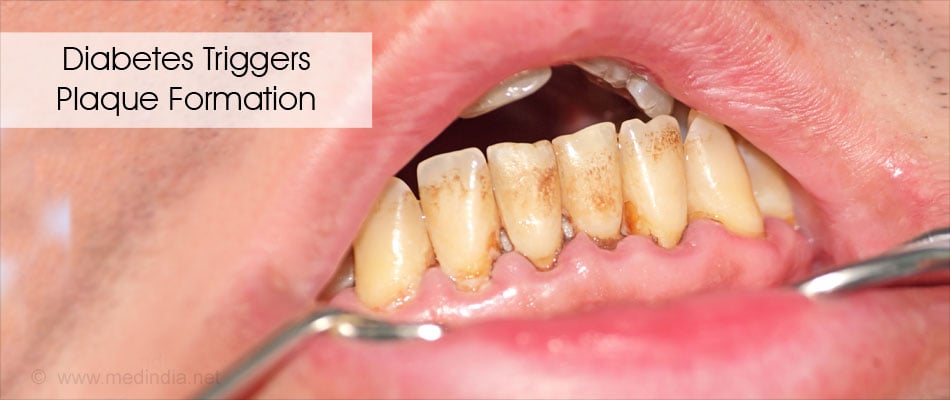
Is there a correlation between Type 2 Diabetes and Oral Health? For the nearly 30 million Americans who have Type 2 Diabetes, many may be surprised to hear about an unforeseen complication that is associated with their condition – bad oral health.
There is in fact an increased prevalence of gum disease among diabetes suffers. Type 2 Diabetics can add serious gum disease to the long list of other complications associated with the dangerous symptoms of uncontrolled diabetes. This includes blindness, heart disease, stroke and kidney disease.
What is the Connection between Type 2 Diabetes and Oral Health?
Emerging research suggests that the relationship between serious gum disease and Type 2 Diabetes is a two-way street. Not only are people with diabetes mellitus type 2 more disposed to serious gum disease, but this condition can also have the potential to affect blood glucose control. It can also contribute to the development of Type 2 Diabetes and other health issues including heart disease.
People with diabetes are also at higher risk of various oral health problems, such as gingivitis. This is an early stage of gum disease, and periodontitis, which is serious gum disease.
Simply put, people with Type 2 Diabetes are at an amplified risk of developing serious gum disease. They are more vulnerable to bacterial infection. This means that they have a reduced ability to fight any bacteria that could potentially invade their gums. In addition, swollen bleeding gums allows bacteria from the mouth to enter the bloodstream and lead to other health issues.
Mention Complications
It’s important to mention that these complications, as will all diabetic related complications, are avoidable with proper diabetes control. If your blood glucose levels are badly controlled, you will be more likely to develop serious gum disease and lose more teeth than non-diabetics.
Diabetes and Oral Health – A vicious cycle
Diabetes and oral health can be a vicious circle, as when a Type 2 diabetic gets an infection such as serious gum disease, it can actually cause blood sugar to rise, making the effect of Type 2 Diabetes more difficult to control.
Additional oral health problems connected to Type 2 Diabetes include the following health issues:
- oral thrush
- chronic dry mouth
- soreness,
- ulcers and canker sores
- infections
- cavities
The Surgeon General’s Report on Oral Health states that upholding good oral hygiene practice is actually integral to your overall health and well-being. It’s obviously very important, whether you are a diabetic or not, that you brush and floss correctly and see your dentist or dental hygienist for regular checkups.
So what can you do?
If you’re a diabetic and your worried about your oral health, there are a number of things you can do.
Ways to Control your Type 2 Diabetes

First and foremost, take control your blood glucose level. This is important not only to avoid this complication but to reduce your risk of developing any diabetic relation complications.
To avoid thrush and fungal infections in your mouth, you need to maintain good diabetic control. You should stop smoking, as well as, remove and clean your dentures every day if you wear them. Maintaining a good blood glucose control will also prevent or alleviate dry mouth that is caused by diabetes.
Avoid too much sugar!

Obviously this is important for your diabetic control, but one of the first things that training dentists learn on their dentistry placements is the effects of sugar of teeth.
Whether you’re a diabetic or not, the bacteria contained in the plaque feeds on the that you eat and drink which creates acids that can destroy your tooth enamel and promote cavities over time! Avoiding sugar is definitely a step in the right direction for your oral health.
Take Good Care of Your Teeth and Gums.
Along with actively brushing and flossing at least twice a day, you should be having regular checkups every six months with your dentist. When you have diabetes you have special needs. Your dentist and hygienist should be able to meet those needs. You should inform them that that you are a diabetic.
It’s really important that you keep your dentist and hygienist up-to-date of any changes in your diabetes or a medication you might be taking. It’s also a good idea to postpone any non-emergency dental procedures if your blood sugar is not in good control, to avoid the increased risk of infection.
Conclusion
If you have diabetes, it is important to control your blood glucose levels. Your dentist can identify the warning signs of diabetes. This includes cavities, swollen and bleeding gums and tooth loss.
Bacteria in the mouth can lead to other issues, such as heart disease if the bacteria enters your blood stream. It is important to work with your dentist to improve your oral health to prevent diabetes related health issues.
Author Bio:
Bethany Pembrook is a London-based freelance writer. She is passionate about health, holistic therapy and natural remedies.
Ken Weiss is a health blogger who is passionate about natural and holistic cures for men’s health issues. He is the founder of menshealthcures.com
Thanks for a great article by Bethany P. Very comprehensive about the interactions between Type 2 diabetes and oral health, including gum disease and cavities in teeth. I heard recently that Harvard researchers in repeated investigations found that the root cause of Type 2 diabetes is inflammation. How will this modify the interactions spoken of in Bethany’s article? Thanks. GD.